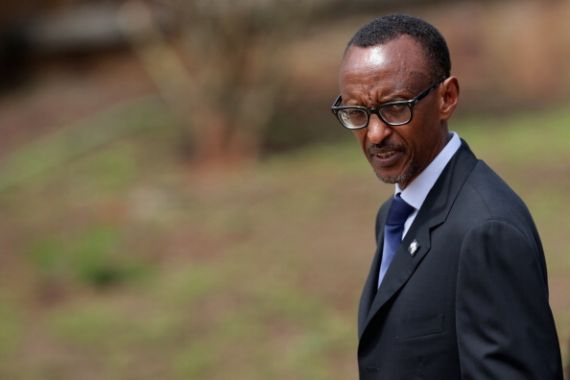Intra-Rwandan dialogue is crucial for peace in the Great Lakes
The conflicts in the Great Lakes region cannot be fully resolved until Rwanda addresses its internal political problems.

Since Rwanda gained its independence in 1962, the country has experienced successive regimes that have stayed in power by any means possible, refusing to implement good governance reforms. The repercussions have been massacres and human rights violations, culminating in the Tutsi’s genocide of 1994.
After the Rwandan Patriotic Front (RPF) took power in 1994, it held national consultations – referred to as Urugwiro Village meetings – to discuss how Rwanda could solve its issues of national unity, democracy, justice, economy and security. The outcomes of these consultations have been the guiding philosophies of the governance implemented by the RPF over the past two decades.
Nonetheless, the way Rwanda’s governance and relationship with its neighbouring countries in the Great Lakes region have evolved over time is a concern. Today there are pressing issues that necessitate holding another intra-Rwandan dialogue between the Rwandan government and dissenting voices and civil society organisations operating in and outside the country to revamp its governance strategy so that long-term stability at home and in the Great Lakes region is guaranteed.
The consensus democracy that aimed to prevent further ethnic violence while accelerating development agreed on during the Urugwiro Village meetings has transformed over time into a political system that suppresses political dissent, restricts pluralism and curbs civil liberty in Rwanda.
In many instances the government has abused its power, collaborating with the judicial system to criminalise its critics under the silent watch of the legislature. These practices, along with widespread human rights abuses, point to the fact that the prospect for full democracy in Rwanda remains rather bleak today.
The mechanisms to promote unity and reconciliation among Rwandans adopted by the national consultation of 1999 were commendable. However, the lack of public and official remembrance of the victims of war crimes committed in Rwanda before, during, and after the genocide against the Tutsis are creating conflicting views among citizens today. This creates social grievances and weakens trust and cooperation among Rwandans.
The development programme put forward during the national consultation of 1999 that aimed to transform Rwanda into a middle-income state driven by building a knowledge-based economy by 2020, has also not delivered on many of its promises. Rwanda remains a low-income state in spite of the abundant financial support that the government has received from development partners. As a result, the goal of turning Rwanda into a middle-income country had to be postponed to 2035.
Over the 20 years since the Urugwiro Village meetings took place, the political scenery in Rwanda has transformed as well. It is no longer limited to the opposition affiliated with the ruling party, but also includes a diverse group of dissenting politicians and activists. Although critics are often marginalised by the government and their voices stifled, they are increasingly being heard across Rwanda and beyond.
The government needs to start taking into consideration the criticism that is coming out of these political quarters. After all, it is the lack of an inclusive political process that hindered good governance and led to conflict in Rwanda in the 1990s.
Some Rwandans have already taken to armed struggle, which has increasingly worried the government and exacerbated relations with Rwanda’s neighbours. The United Nations has issued a number of reports alleging the Rwandan government is involved in the conflict in the eastern part of the Democratic Republic of the Congo (DRC), where it is trying to stem insurgencies it perceives as threatening. Officials in Kigali have repeatedly denied these accusations.
Political tensions between Rwanda and Burundi and Uganda have also worsened in recent years over allegations that these two countries are supporting opposition figures who also want to topple the Rwandan leadership by force. This has led to the closure of borders, which has had a negative economic impact on the country.
To address all these challenges, a new intra-Rwandan dialogue is absolutely necessary today. Such a forum could come up with important reforms that can help improve governance. This would enable Rwanda to secure long-term stability and eventually contribute to conflict resolution in the Great Lakes region.
This dialogue would be aligned with the UN strategy for peace consolidation, conflict prevention and resolution in the Great Lakes region adopted in October 2020. The strategy affirms that effective and sustained dialogue among citizens is key to fostering trust, addressing underlying grievances and facilitating actions for peace, stability and prosperity.
Fortunately for Rwanda, a constant quest for solutions through dialogue is one of the fundamental principles in its constitution. In June 2021, we submitted to the Rwandan government a roadmap for a promising future, requesting the proposed dialogue to be organised before Rwanda’s presidential election in 2024.
For more than a decade, the international community has tried to find a solution to the persistent instability in the Great Lakes region. I have always argued that without solving Rwanda’s internal political problem, it will be impossible to bring about stability in that region.
It is therefore timely and appropriate that regional and international stakeholders support the realisation of the proposed intra-Rwandan dialogue for governance reforms in Rwanda and peace consolidation in the Great Lakes region.
The views expressed in this article are the author’s own and do not necessarily reflect Al Jazeera’s editorial stance.
